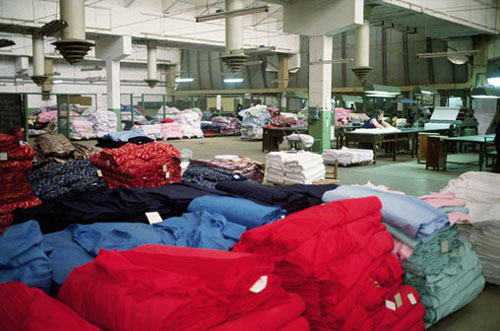By
Reuters
Reuters
Published
Sep 15, 2009
Sep 15, 2009
China says no renewal of S.Africa textile curbs
By
Reuters
Reuters
Published
Sep 15, 2009
Sep 15, 2009
PRETORIA (Reuters) - China does not plan to renew a voluntary two-year restriction on textile exports to South Africa imposed after unions complained that cheap imports were hurting local manufacturers, its ambassador said on Tuesday 15 September.
 |
Zhong Jianhua said the quotas that ended at the start of this year had failed to bring about any improvement in the competitiveness of the country's textile sector, and so it would be pointless to drag them out further.
"There's no reason to extend that limitation on our own exports to South Africa because these two years did not bring about any benefit to both sides," Zhong told Reuters in an interview in Pretoria.
"The truth is that we have Chinese manufacturers who would not be happy to see that," he said. "You see, the last year was pretty bad for Chinese exports."
Quotas on Chinese textile and clothing imports to South Africa came into effect in January 2007 in response to union complaints about external competition.
At the time, retailers complained about the higher prices that would result from blocking Chinese textiles, and the central bank said they could add to inflationary pressures in the economy.
The SAPA news agency said the South African Clothing and Textile Union (SACTWU) was launching a strike involving as many as 60,000 workers on Tuesday 15 September to demand an above-inflation pay increase of between 7.9 and 11.5 percent.
South Africa has suffered a series of strikes in the last few months as unions in sectors ranging from mining to the state broadcaster have fought for better pay in annual wage negotiation talks with management.
Zhong said that although textile exports to South Africa only accounted for one percent of all such shipments out of China, any extension of the restrictions would send a major "symbolic message" to an industry that employs millions.
"We have strong resistance from the Chinese textile industry," Zhong said.
Instead, he said Beijing and Pretoria were investigating ways in which the two countries could marry Chinese manufacturing expertise with South African design and marketing skills to produce clothes that could appeal to Western markets.
Pretoria said in May it would give cheap loans to textile firms to help them compete internationally, and promised to crack down on illegal imports that have forced several South African companies out of business and made others cut jobs.
The government sees vehicle manufacturing and the textile industry, one of the biggest employers in Africa's biggest economy, as crucial to growth in a country now languishing in its first recession in 17 years.
By Ed Cropley
© Thomson Reuters 2024 All rights reserved.

























